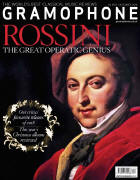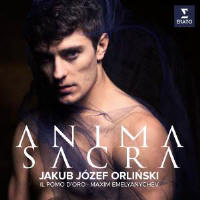Texte paru dans: / Appeared in: |
|
|
Outil de traduction (Très approximatif) |
|
|
Reviewer: Alexandra Coghlan t’s hard to get past the album artwork; numerous images of a bare-chested Orlin´ski swathed artistically in tulle position him firmly as whatever the countertenor equivalent of a barihunk is (countertenor cutie?). It’s distracting and ultimately unnecessary – debasing a performer who, on the basis of this recherché collection of works, is already a serious artist. Yannis François (whose booklet notes have the energy of a man actually in the archives making discoveries) has worked with Orliński to put together a thoughtful collection of little-known sacred works from the second half of the 17th century – including not just liturgical music but also oratorios and azioni sacre – that collide the drama of the opera house with the contemplation of the church. If Orliński’s marble-cool countertenor brings the spiritual, then Maxim Emelyanychev and Il Pomo d’Oro offer some deliciously secular friction. Nicola Fago’s solo cantata Confitebor tibi, Domine (arguably the best of the eight premiere recordings here) sways and grooves with rhythmic interest – the ‘Fidelia omnia’ an all-out sacred hoedown – and the roiling, bubbling drama of Hasse’s ‘Mea tormenta, properate!’ reeks of greasepaint and gunpowder. In the studio at least, Orliński rides this densely textured accompaniment with ease. It’s an attractive voice that has something of Jaroussky about it (the unworked purity, the easy legato) but with the greater focus and muscularity of a young Scholl, Zazzo or Davies. There’s a tendency though to overcook it, pushing until tone becomes forced and fluttery – not the free spin of natural vibrato but something a bit more gripped and manic. A little more lean back and a little less endeavour, however, and this is a voice with a big future. |
|




